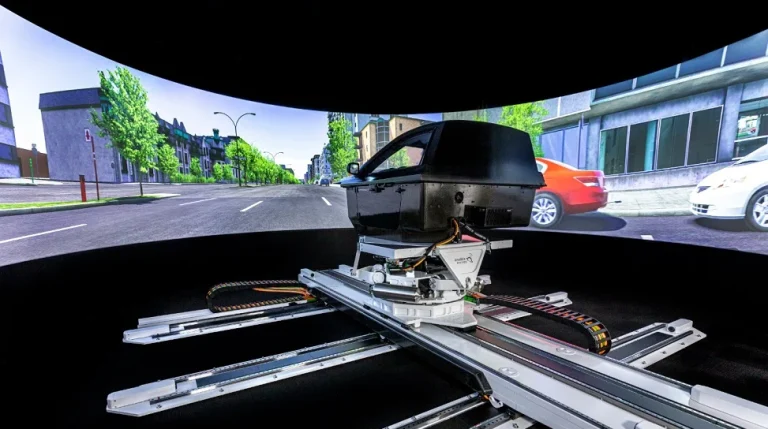Hyundai Motor Group is considering introducing a virtual reality-based driving simulator to its vehicle development process to reduce the cost and time of actual driving tests, thereby improving the competitiveness of future models, according to foreign media reports and Ansible Motion.
Hyundai is planning to introduce Ansible Motion’s VR driving simulator to the new vehicle development stage. The model under consideration is the Delta Series, with implementation expected as early as this year.
Ansible says its driving simulator can accurately reproduce the real driving environment in virtual space through mathematical modeling. It can apply vehicle specifications and settings, just like driving on real roads; support the creation of diverse driving scenarios; and test the vehicle’s acceleration performance, steering response, braking effectiveness, and other metrics. The simulator can also set sudden variables such as collision accidents as test scenarios to predict damage result values, the companies state.
Ansible says that the introduction of the simulator would significantly reduce the time and cost of vehicle road testing. With the VR simulator, Hyundai would be able to conduct accurate virtual experiments from the initial design stage of vehicle development, meaning that trial and error could be minimized and the cost and time of prototype production and driving evaluation could be reduced.
The auto maker is planning to launch 21 electric models by 2030, while Kia Corp. is set to roll out a line-up of 15 electric models, including purpose-built vehicles (PBVs), by 2027. All new vehicles must undergo rigorous testing for high-speed driving capability and braking performance. The adoption of VR simulators would significantly shorten this process, enabling more precise testing while reducing the need for manpower, equipment and on-road testing time.
Industry insiders said, “As performance tests approach their limits, costs such as professionals and tires also increase. The use of VR simulators can not only reduce costs, but also achieve environmental benefits by reducing fuel and tire consumption.”
Ansible Motion’s simulator has been supplied to automakers such as BMW Group, Ford, GM and Honda, and is also used by suppliers such as Continental and Nexen Tire. Data sharing and collaborative verification based on the same simulator platform will become possible. With regards to this, Hyundai Motor Group said, “We are currently considering the introduction of Ansible Motion simulators, but it has not yet been finalized.”


